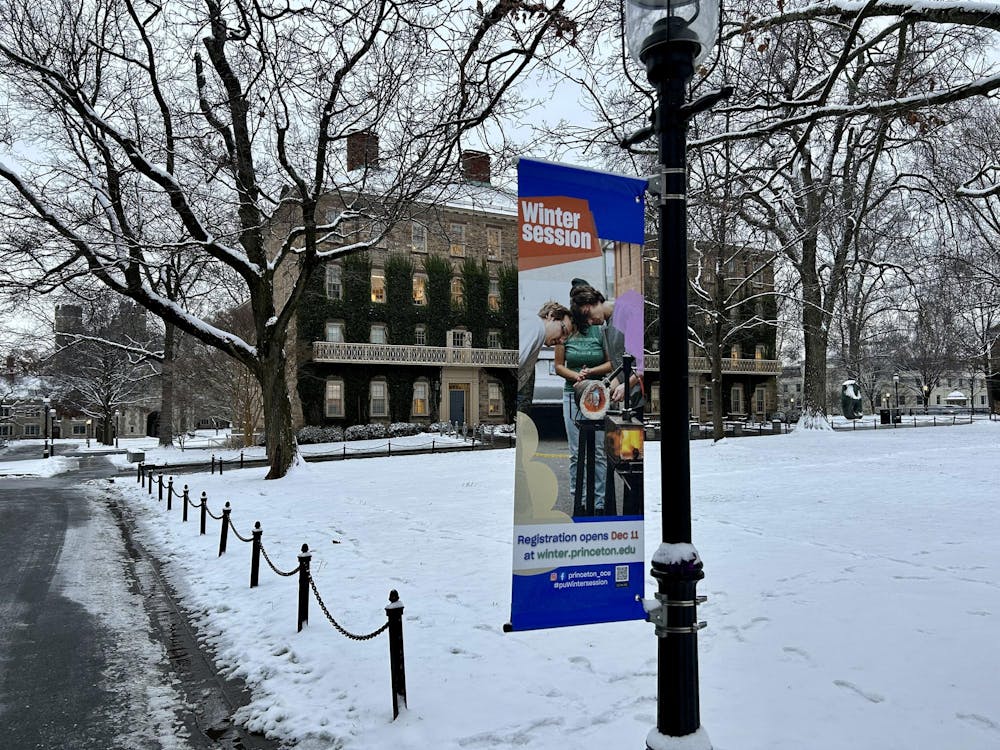The University has initiated plans to build two new residential colleges south of Poe and Pardee Fields, hiring architecture firm Deborah Berke Partners for the project. The planned colleges will allow the University to increase the size of future undergraduate classes “in a way that preserves the distinctive character and value of the Princeton experience,” according to the University’s Strategic Planning Framework.
The first of the new residential colleges will allow the University’s undergraduate enrollment to increase by 125 students per class. New buildings will include room for “at least 500 beds, social spaces, a dining hall, and a kitchen/servery that could also support a second [residential] college,” as stated on the Berke Partners website. According to the University’s campus plan, the colleges are scheduled to be constructed within the next 10 years.
The project will be led by firm partners Deborah Berke, dean of the Yale School of Architecture, and Maitland Jones ’87, along with firm principals Arthi Krishnamoorthy and Noah Biklen.
“‘Our goal here is to design residential colleges that the students can occupy and make their own,’” Jones wrote in a statement on the firm’s website. “‘This requires a balance of spaces that are specific and have a distinctive character with those that are flexible and adaptable.’”
President Eisgruber approved of the choice, referring to Deborah Berke Partners as an “‘outstanding and inspired choice to design Princeton’s next residential colleges,’” according to an article by the Office of Communications.
“‘Expanding our undergraduate student body is an essential feature of our commitment to extend access to a transformative Princeton education, and this project represents a significant step toward that vital goal,’” Eisgruber added.
Berke echoed these sentiments, stating that the design of the new colleges will symbolize the University’s goals of increased diversity and inclusion, creating a “‘welcoming environment where students will thrive.’”
Removing old structures in the area will be necessary before adding new ones. Building the first residential college will require relocating the Lenz Tennis Center and the Class of 1895 Softball Field to south of Lake Carnegie, and the potential development of the second residential college will also entail moving the Roberts Soccer Stadium and Myslik Field to the site of the current soccer practice field, according to an article by the Office of Communications.
Student athletes expressed concern over the changes in athletic facility locations.
“Moving the softball field across Lake Carnegie would be a huge change for the girls on the softball team and the program as a whole,” said softball player Keeley Walsh ’19. “This new field location would nearly double the commute to and from the field. It is understandable that the University doesn’t want to put a new residential college past Lake Carnegie because it’s too far, but why isn’t this location too far for a softball field?”
“It’s hard to predict how the new res college system will affect accessibility to the fields for students and faculty to come out to the games, but I definitely feel it could be a hindrance to attendance,” added soccer player Cole Morokhovich ’20.
“From the culture side of things, losing a home like Myslik Field at Roberts Stadium would definitely be a huge adjustment for the players in terms of playing atmosphere and team history. Even walking to and from would just be so different,” said soccer player Mohamed Abdelhamid ’20.

Although changes to lower campus will rearrange the sports community, they will allow expansion of the University’s undergraduate community by ten percent, as stated in the 2026 Campus Plan. Ultimately, these renovations are designed to bring the University’s educational experience to a greater number of people.
Deborah Berke Partners was named in Architectural Digest’s list of 100 most influential architects and designers, and it recently received the National Design Award from the Cooper Hewitt, Smithsonian Design Museum. The firm is currently also working on a building redesign for Harvard Law School and a new residential hall for Dickinson College.







